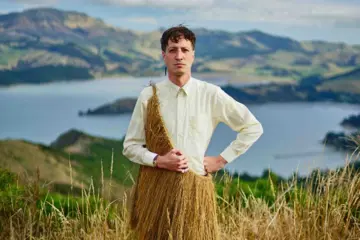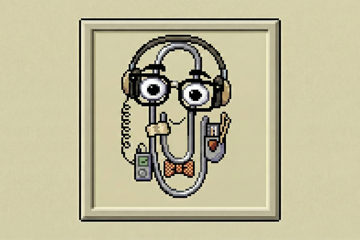The Argument is in stores now.
The brilliant and sometimes revolutionary Washington D.C. quartet, Fugazi, have spent 15 years pursuing a path away from - and way under, if that's where counter-culture should be located - the mainstream. They're success is that they still exist and in doing so have made some of the most profoundly significant post-hardcore rock records of all time.
They are also icons to several generations of fans who have followed their community activism, $5 shows, $10 CDs, and an existence that borders on the folkloric. Guitarist/vocalists Ian MacKaye and Guy Picciotto, drummer Brendan Canty and bassist Joe Lally began - live, in a church basement at the Wilson Centre in D.C., on September 3, 1987 - as they meant go on – the music industry never really existed.
Mackaye runs the Dischord label which releases all their material, and the band has refused to do interviews with major publications, which means some tall 'conclusions' have been drawn and 'tales' told in the name of a story. They have just fed the myth.
Even their fans are asked to toe the line: Fugazi has always been resolutely anti-moshing, so much so that MacKaye has often stopped the band mid-song to calm a crowd down, and - occasionally - offered troublemakers their money back to leave the venue.
Don't miss a beat with our FREE daily newsletter
They have a new album, The Argument, arguably as good, diverse and smart an album as they've ever released. No, it isn't all thunder and histrionics. Those days are long gone. Yes, Fugazi turn up the volume when the song demands but on The Argument they caress, play with atmospheres, even pop music and acoustics. Taut guitar, whispery vocals, quiet tensions, post-rock influences - set against bristling, post-punk jaggedness. An album of rare depth.
“I wanted to make a new record... to document the songs that we had been working on for the past two or three years,” MacKaye explained via email. “We never go into the studio with a clearly set agenda - beyond the making of a good album.”
A spontaneous album or a considered, slowly built record?
“Both. Some of the songs on there, we've been knocking around for over a decade; some were crafted in the studio. There is no uniform description I can offer.”
What would you most like people to get from The Argument?
“I don't have any hopes other than that people would like the record. Our work really begins and ends with the idea that we were able to commit to tape something that we're happy with. It would be nice if other people felt the same way but it's not necessary.”
To these ears the Argument leaves Fugazi with unlimited possibilities sonically in the future. Do you agree and is there an obvious direction you think the band is moving in? If so what?
“I think we have always tried to challenge ourselves musically and, most of all, we've tried to write good songs. I don't have any ideas what's next in terms of songwriting, and I won't have a clue until we start working on new songs.”
Nice to see using Bridget, Kathi and Amy of Bikini Kill on the record - more than a decade after you produced the eponymous Bikini Kill debut EP. You obviously remain good friends
“Amy is a great cello player and we thought her work would make pleasant sense in the context of the songs that we asked her to play. Guy had backing vocal ideas for a couple of songs so he asked Bridget and Kathi to come in and sing. We wanted to achieve a good-sounding record.”
15 years after you formed, Fugazi remain a tremendous statement of a band that is utterly self-sustained and owes very little - if anything at all - to the conventional music industry. How bad do you think the conventional industry has become and how possible - realistically - do you think it is for bands to be self-sustaining?
“I don't really keep tabs on the major music industry nor do I really care what shape it is in. My interest has always been squarely focused on the underground counter-cultural community and the independent music that springs from it. I would say that it is as possible to form and operate a band that could be 'self-sustaining' as it ever has been. The challenge is, of course, to form a band that people want to see and hear.”
How important do you think the internet is in offering bands the chance to run their own show - or do you think the whole net experience is somewhat over-rated?
“I have never spent too much time on the internet and I've never been able to download music files so I'm not in the position to say anything about this subject. It does seem to me that while it's quite easy to post music on a website, it's getting people to find the website, much less visit it, that is the serious pickle.”
What advice would you give to young bands starting out now?
“Play music because you love it. That way if you finish up never having released a record or achieving whatever level of success that you hoped, you will have at least spent your time doing something you loved.”
















